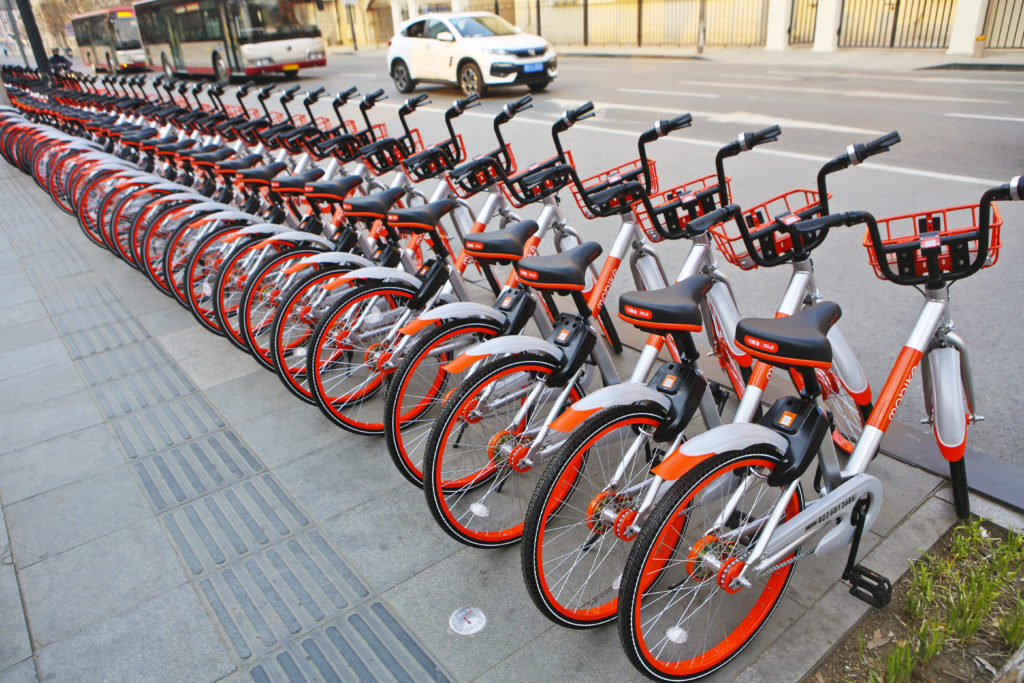We know many of our readers are keenly interested in the major trends within China’s economy. As a result, we have frequently turned our attention to the ways it is always evolving. One of the most interesting trends is the growth of the ‘sharing economy’.

This trend is not limited only to China. In fact, examples of the sharing economy can be seen in various countries and continents around the world. Nowhere, however, has the growth of the sharing economy been as significant, or as highly prioritized by national leaders, as in China.
You might be wondering, “ What is a ‘share economy’ ”? It is a type of economy that is not monetarized and it is not based in a capitalist system. In the sharing economy, individuals are said to hire out things like their cars, homes and personal time to other individuals in a peer-to-peer fashion. Two examples that some Americans have become familiar with include Uber/ Lyft and Airbnb. To be fair, these are near relatives of the sharing economy because in these examples, there is still a significant transaction fee, not true sharing. Additionally, Airbnb properties are frequently owned by property management companies, not individuals.
Sharing economies harness new communications technologies that help people share versus own what they have with other people. These economies produce community, environmental and economic benefits for those who participate in them. In China, the experimentation in various sharing markets has been extensive. Everything from bicycles, houses, and cars to umbrellas, basketballs and flower pots have been included in various sharing schemes. From the different businesses that have been attempted, the Chinese have shown us that success has been the greatest when shared assets are more expensive and less frequently used. In these cases, participants enjoy significant cost-savings and this tends to drive higher levels of participation. High participation levels, from both the supply and demand sides of the transaction, is required for these businesses to become sustainable.
Trust is also a very important element in the success of these businesses. Those on the ‘demand’ side have to trust that they will find the products / services they need, where and when they need them. Those on the ‘supply’ side have to trust the other side to return the things that have been shared with them. There have been examples when trust was violated and companies were put out of business; one firm lost 300,000 umbrellas (it’s entire supply) in a matter of weeks because the small deposits that were left by users was too small to drive return of the umbrellas.

However, maybe the most important element of success in the Chinese model is the ‘national priority’ that the Chinese government has placed on developing this industry. When the CPC says that something is a priority, it’s impressive to see how quickly things get done.
In 2017, 600 million people (43% of the nation’s adult population) participated in sharing market transactions, generating an equivalent of $500 billion dollars in revenue. Comparatively, only 21% of Americans have participated in a ‘sharing’ transaction to date. The CPC projects an annual growth rate of 40% and have stated that in 2020, the sharing economy will contribute 10% of China’s total GDP. This will increase to 20% by 2025.

There’s another very important element that sharing economies require to truly succeed; advanced communications technologies. This technology includes the Internet (especially mobile Internet), broadband, cloud computing, big data, Internet of things, mobile payment, and location-based service (LBS).
In In an interview, William Chou, head of Deloitte’s telecoms, media and technology practice in China, said that collecting data is the first goal of the sharing economy. Every time consumers scan the QR code on a bicycle — or basketball, handbag, umbrella — they provide information about habits, locations, behaviors and payment histories. Therefore, the platform must take measures to establish confidence of both parties. For example, the platform must check participants before allowing them to join, or set up a participant credit evaluation system based on previous transaction records, or provide security or insurance against bad results, or set up a prepayment mechanism, etc. Unlike traditional business models, the credit evaluation system and other trust mechanisms (such as insurance, guarantee, and prior review of participants) of the sharing platforms can effectively reduce concerns caused by information asymmetry on the two-sided market, thus reducing the demand for government regulation. For this reason, sharing not only means sharing information or practical items between users and third-party service providers, but also often sharing users and data with platforms. Therefore, sensitive data, such as personal addresses, contact information, preferences and habits, and even the lifestyle of participants, are exposed to platforms.
We’re living in an age where the rate of change has never been faster, and it only seems to increase. We are witnessing new technologies, new human needs, new challenges and new solutions. Word4Asia is in the business of helping our customers meet new challenges successfully in the endlessly fascinating nation of China. Keeping abreast of changes such as the burgeoning sharing economy, is an example. If your growth plans include success in China, our success rate says that we can play an important role for you. An initial consultation is available for the cost of a cup of coffee (if you happen to be in Southern California). Contact Dr. Gene Wood to start a conversation you’ll be glad you had.
Email: gene@word4asia.com




